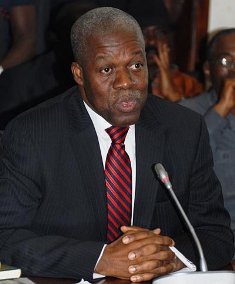
Vice President Paa Kwesi Bekoe Amissah-Arthur on Tuesday gave the assurance that Government is looking for ways to generate more power and increase access to small and medium scale entrepreneurs.
This, he said, is to create more jobs for further growth in the Ghanaian economy.
To this end Government would not depart from its pledge to double the power generation within the next four years as contained in the manifesto of the ruling National Democratic Congress.
“Most of the work is for us to do…“We’ve taken the challenge,” Vice President Amisah-Arthur said.
The Vice President gave the assurance in Accra, at the Flagstaff House, when a delegation from the Technical Committee of the Partnership for Growth, currently in Ghana to finalise the American development pact with Ghana paid a courtesy call on him.
The Group was led by Mrs Oren Whyche-Shaw, Head of the Technical Committee.
He said President John Mahama had initiated steps to increase the pace of economic growth, observing that access to credit still remained an important factor in business development.
He described the US partnership with Ghana as a “wonderful story of co-operation”.
Mrs Whyche-Shaw said the five- year deal is larger than the coverage of the Unites States Agency for International Development and involves a joint activity by the US and Ghana.
She lauded the performance of Ghana’s economy, and added that the team is looking forward to identify what needs to be done to see the deal through.
The Partnership for Growth (PFG) is a deal between the United States and a select group of countries like Ghana, El Salvador, Tanzania and the Philippines to accelerate and sustain broad-based economic growth by putting into practice the principles of President Barrack Obama’s September 2010 Presidential Policy Directive on Global Development.
It involves rigorous joint analysis of constraints to growth, the development of joint action plans to address the constraints, and high-level mutual accountability for implementation.
One of PFG’s signature objectives is to engage governments, the private sector and civil society with a broad range of tools to unlock new sources of investment, including domestic resources and foreign direct investment.
This is based on their performance on the Millennium Challenge Corporation’s selection criteria, a track record of partnering with the United States, policy performance, and potential for continued economic growth, among other considerations.